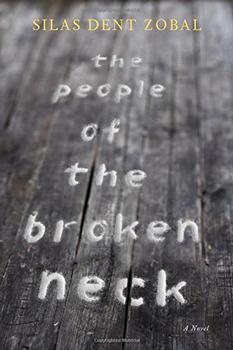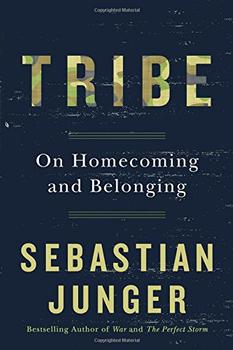Summary | Excerpt | Reviews | Beyond the book | Read-Alikes | Genres & Themes | Author Bio

Novels with a strong social message – much like vegan food – tend to come in two types: blatantly good for you with little attempt to dress up the flavor, or deceptively healthy, so tasty you don't even realize you are consuming something that's beneficial. The former tend to favor theme over plot or characterization. The latter category is harder to pull off, requiring embedding a social agenda within a compelling, organic story. These differing approaches kept coming to mind as I read Ron Childress' And West is West, a novel that addresses some serious, even urgent, social questions but which seems at times more interested in scoring quick points for being socially conscious than really exploring the issues it raises, in a thoughtful and thorough way.
The novel moves back and forth between two main characters who don't know each other and appear at first to have nothing in common: Ethan, a computer programming wizard who works for an international bank, and Jessica, a drone pilot in the Air Force. From the beginning, Childress seizes on a couple of assumptions that more or less undergird the entire novel – namely, that international banking is evil and the military is a soul-less killing machine with no tolerance for dissent.
Ethan's work involves creating computer programs that will allow his bank's currency traders to make money from the instability caused by terrorist attacks. Jessica's job is to sit in the Nevada desert in a cramped mobile operations facility and push buttons that will activate missile strikes from drones targeting terrorists halfway around the world. Both characters do something to fall out of favor with their bosses very early in the novel, and spend the rest of their time actively hiding from society – Jessica on the run from a pair of embittered career government field agents and Ethan from a shadowy Russian capitalist who wants to hire him to add to his millions.
Childress moves the story along with efficient prose. The action sequence that begins the book, involving a drone strike that might or might not be targeting civilians as well as terrorists, is taut and tense and reveals a facility for balancing external and internal conflict. To my ear, however, hardly anything else in the rest of the novel lives up to those early moments of terse moral ambiguity. The situations Ethan and Jessica find themselves in initially are not uninteresting and seem worth exploring but Childress does not develop or enhance our understanding of them or the backstories, or to give the readers much reason to care about either character.
Childress holds up the military and international banks as bogeymen but then does little with these themes the rest of the novel. We don't get any substantive discussion about the morality of drone strikes (somewhat odd, given Jessica's reason for leaving the service), or of the need for oversight of big banks, or really anything at all related to military or corporate interests. (Have international banking and the military become such standard shorthand for moral repugnance that novelists no longer even feel obligated to make the case why we should dislike them?)
Jessica and Ethan have been used by their employers for arguably nefarious purposes, but they have also benefited from their experience and advanced their careers. Yet once they are divorced from their former lives, they seem to care little that they have left it all behind. What once seemed meaningful to them never really gets mentioned or reflected upon. It's odd to find major characters in a novel so complacent when they should be indignant – or at the very least conflicted. Jessica spends the novel as a fugitive, running from the government but almost no time running through her own thoughts about what's happened to her, and why. Does she now regret going into the military? Is she a pacifist? Is she a patriot? What does that even mean? The same is true with Ethan, who drops out but never really tunes in to what's happening. He's living as a fugitive too, but he's avoiding self-examination rather than the law.
There are moments in And West is West that are effective, even poignant. Jessica's father, a convicted murderer who's hiding an explosive family secret, writes to his daughter from prison, and these letters demonstrate the soulful feeling that the book seems to lack elsewhere. The father, though he is a minor character, evidences genuine humanity, and his embrace of his past – and all the pain he's endured because of his errors in judgment – makes him seem real in the way the protagonists do not.
There's no doubt that drone strikes and currency manipulation deserve more attention and thought than they currently get in the public discourse. But the book's simplistic disdain for them seems easy and superficial. I suspect both operations are more complex and dramatically compelling than this well-intentioned misfire of a story suggests.
![]() This review was originally published in The BookBrowse Review in November 2015, and has been updated for the
July 2016 edition.
Click here to go to this issue.
This review was originally published in The BookBrowse Review in November 2015, and has been updated for the
July 2016 edition.
Click here to go to this issue.

If you liked And West Is West, try these:

by Silas Dent Zobal
Published 2016
A soul-damaged man, broken by war, struggles to reclaim his home and family.

by Sebastian Junger
Published 2016
We have a strong instinct to belong to small groups defined by clear purpose and understanding--"tribes." This tribal connection has been largely lost in modern society, but regaining it may be the key to our psychological survival.
Your guide toexceptional books
BookBrowse seeks out and recommends the best in contemporary fiction and nonfiction—books that not only engage and entertain but also deepen our understanding of ourselves and the world around us.